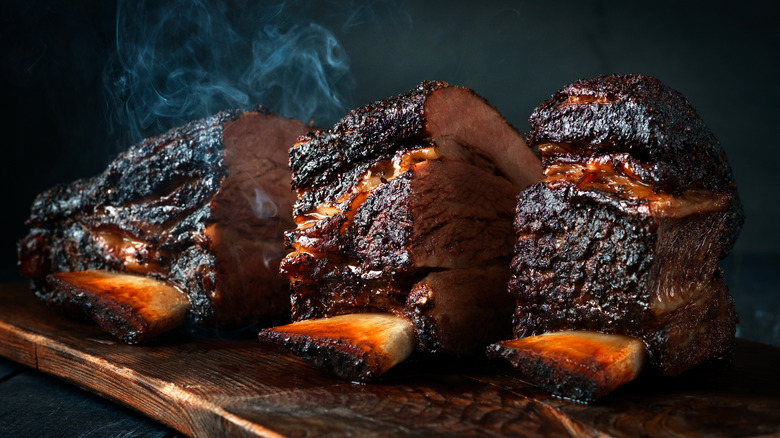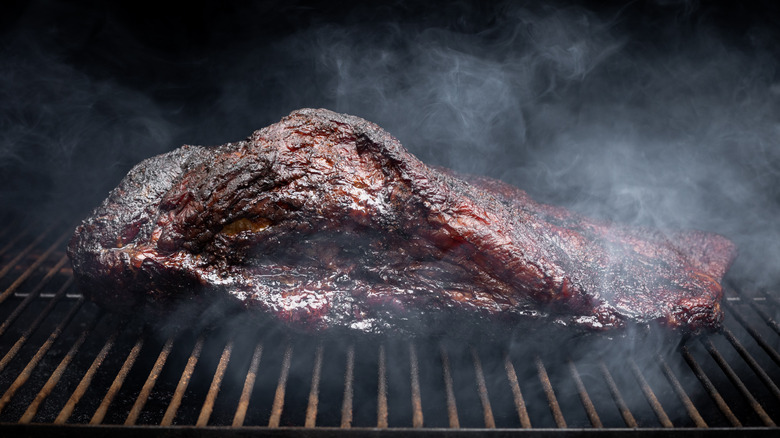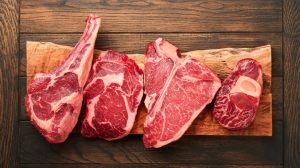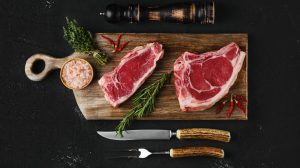Brisket is the poster child of American barbecue culture. When done right, brisket can be succulently tender and full of big beef flavor. You may be surprised to learn, then, that brisket is one of the toughest cuts of the cow — sitting right at the front pectoral muscles. Because of this, brisket is best cooked low and slow which most people do either in a smoker or by braising the brisket. For those of us who don’t have a full outdoor kitchen, a smoker may not be an option. We cook other delicious meats on the grill, shouldn’t that work just as well? Unfortunately, not really.
For anyone who’s cooked brisket before, you probably know how easy it is to ruin it. Apply too much heat and the muscle fibers will tighten up into a dense block that you’ll be chewing for days instead of the soft strips that melt in your mouth. A grill is designed to apply high heat to whatever you’re cooking, the exact opposite of what you need to get the desired result from brisket. Some people can jerry-rig their grills to work like a smoker, with varying degrees of success, but if you are considering using your grill the same way you would cook a hamburger you’re going to end up with a tough piece of meat.
What’s a brisket made of?

The brisket is full of connective tissue and collagen. Normally, you cook brisket by holding the temperature between 160 and 205 degrees Fahrenheit. It’s within this temperature range that collagen becomes gelatin, given enough time, resulting in a beautifully made brisket. Chances are your grill is going to have a tough time not going over that temperature range. And even if it does hit the sweet spot, you’ll have your work cut out for you keeping it constantly within that range for the several hours needed to complete the process — especially if you’re using a charcoal grill.
You can find a few recipes online that tell you how to cook a brisket on a grill, but take their advice with a grain of salt. It’s well understood that the only way to keep your brisket from becoming a beef brick is the low and slow method which grills are not known for. This isn’t just a common preference, the very structure of the meat itself requires a different approach. Incredibly, one of the toughest pieces of meat is commonly known for just how juicy and tender it can get, but that’s a testament to all the world-class chefs out there getting down to the fundamentals and making it work. A grill isn’t the tool they use for this challenge.







